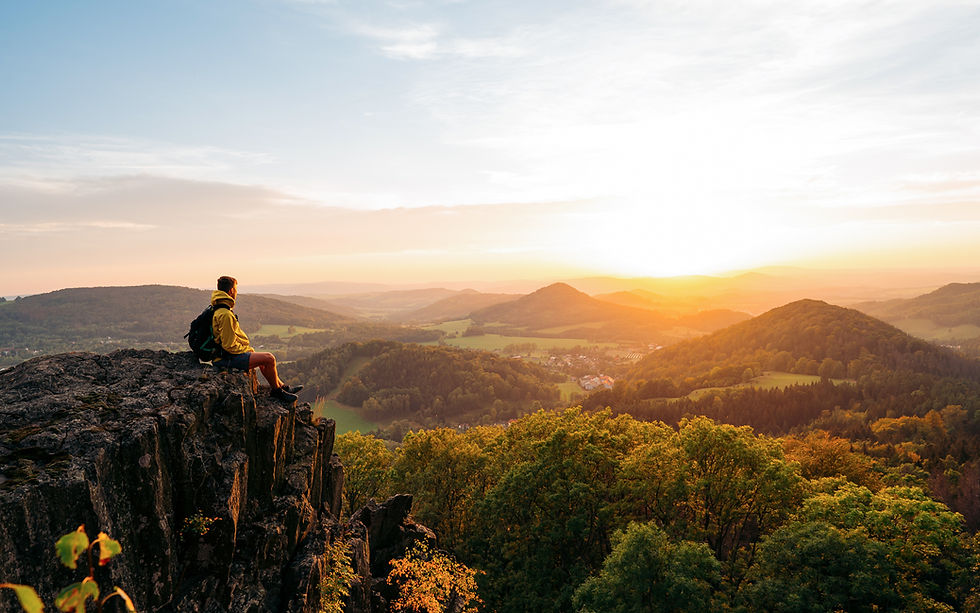Embracing Nature: Off-Grid Living and Sustainability
- Tiffany Gridine
- Aug 17, 2023
- 2 min read

In an era defined by technological advancements and urban sprawl, a growing number of individuals are seeking solace in the simplicity of off-grid living. Far away from the concrete jungles and constant hum of electricity, these modern-day pioneers are choosing to embrace nature and sustainable practices, paving the way for a more harmonious and eco-friendly way of life.
At its core, off-grid living involves disconnecting from mainstream utilities and relying on self-sustaining systems. Solar panels harness the power of the sun, wind turbines capture the breeze, and rainwater is collected for various needs. By tapping into these renewable resources, off-grid dwellers reduce their carbon footprint and contribute to a cleaner, greener planet.
One of the key benefits of off-grid living is its promotion of self-sufficiency. Residents are encouraged to grow their own food, practice permaculture, and cultivate a closer relationship with the land. This level of independence not only fosters a sense of empowerment but also reduces the demand for mass-produced goods and the environmentally harmful practices that often accompany them.
Living off the grid necessitates a deep respect for nature's cycles and a greater understanding of resource conservation. Residents become more attuned to the changing seasons, the availability of water, and the importance of minimizing waste. This heightened awareness instills a profound sense of responsibility towards the environment, leading to mindful consumption and a commitment to preserving natural resources for future generations.
Beyond the environmental benefits, off-grid living offers a unique opportunity for personal growth and introspection. Removed from the distractions of modern life, individuals have the space and time to connect with themselves and discover what truly matters. The peace and tranquility of nature become a canvas for self-discovery and a source of inspiration for creative pursuits.
In addition to the individual level, off-grid communities exemplify the strength of collective efforts. The spirit of cooperation and mutual support is evident as community members come together to share knowledge, lend a helping hand, and collaborate on sustainable projects. This sense of togetherness creates a resilient support system and fosters a strong sense of belonging.
However, it's essential to recognize that off-grid living is not without its challenges. It demands adaptability, perseverance, and a willingness to embrace a simpler lifestyle. It requires learning new skills, facing the unpredictability of weather patterns, and overcoming occasional hardships. Yet, for those who embark on this journey, the rewards far outweigh the difficulties.
Off-grid living embodies a profound connection with nature and a commitment to sustainability. It empowers individuals to reclaim control over their lives, reduce their environmental impact, and cultivate a deeper appreciation for the natural world. The off-grid lifestyle exemplifies a harmonious coexistence with nature, and it serves as a powerful reminder that living in harmony with the Earth is not only possible but essential for the well-being of our planet and future generations.





Comments